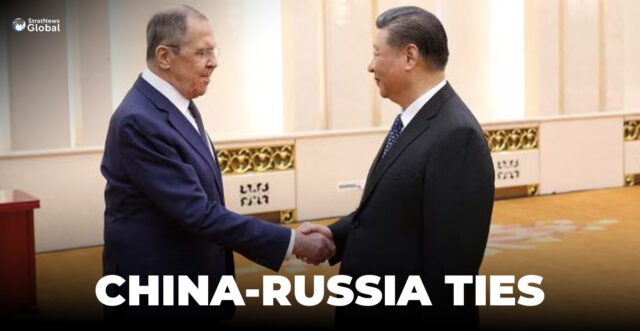Russian Foreign Minister Sergei Lavrov met with Chinese President Xi Jinping, according to a statement from the Russian foreign ministry on Tuesday.
Lavrov is in China to attend a foreign ministers’ meeting of the Shanghai Cooperation Organization (SCO).
The two nations’ foreign ministers held talks on Sunday to discuss bilateral ties with the United States and explore potential pathways to end the war in Ukraine, according to statements from both countries’ foreign ministries.
“The parties also discussed relations with the United States and prospects for resolving the Ukrainian crisis,” Russia’s foreign ministry said.
“The importance of strengthening close coordination between the two countries in the international arena, including in the United Nations and its Security Council, the SCO, BRICS, the G20 and APEC, was emphasised,” the ministry said.
The close contact between the two countries was to “promote the development and revitalisation of each other, and jointly respond to the challenges brought about by a turbulent and changing world,” China’s Foreign Ministry said.
China-Russia Ties
“Lavrov conveyed to the Chinese leader a friendly greeting and best wishes from the President of the Russian Federation Vladimir Putin,” the Russian ministry said in a statement on its website.
“The two sides discussed a number of issues concerning bilateral political contacts … including preparations for the Russian President’s upcoming visit to the People’s Republic of China.”
The Russian president will travel to China to attend the Shanghai Cooperation Organization summit, hold talks with Xi Jinping and join ceremonies on September 3 marking the anniversary of the victory over Japan in World War II.
China and Russia declared a “no limits” partnership in February 2022 when Putin visited Beijing, days before he sent tens of thousands of troops into Ukraine. Putin has sometimes described China as an “ally”.
The Russia-China partnership has emerged as a defining axis in global geopolitics, driven by shared strategic interests and a mutual desire to counterbalance Western influence, particularly that of the United States.
(With inputs from Reuters)





